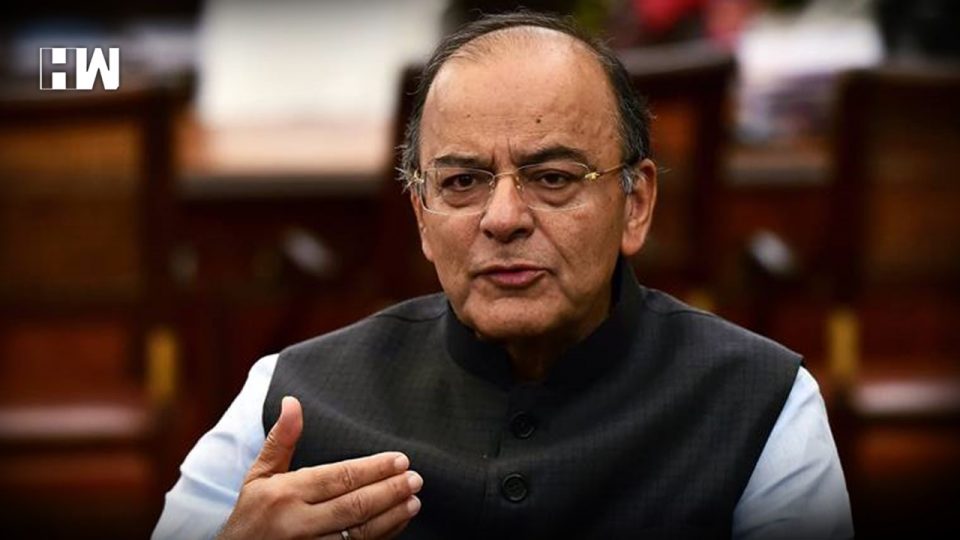Union Minister Arun Jaitley today urged citizens to pay their due share of taxes “honestly” to reduce dependence on oil as a revenue source, and virtually ruled out any cut in excise duty on petrol and diesel saying it could prove to be counter-productive. While salaried class pay their due share of taxes, Jaitley said “most other sections” have to improve their tax payment record, which is keeping India “far from being a tax-compliant society”. “My earnest appeal, therefore, to political leaders and opinion makers …would be that evasion in the non-oil tax category must be stopped and, if people pay their taxes honestly, the high dependence on oil products for taxation eventually comes down.
In the medium and long run, upsetting the fiscal maths can prove counter-productive,” Jaitley said.
In a Facebook post titled ‘The Economy and the Markets Reward Structural Reforms and Fiscal Prudence’, Jaitley said in last four years, central government’s tax-GDP ratio has improved from 10 per cent to 11.5 per cent. Almost half of this, 0.72 per cent of GDP, accounts for an increase in the non-oil tax-GDP ratio.
“Reliefs to consumers can only be given by a fiscally responsible and a financially sound central government, and the states which are earning extra due to an abnormal increase in oil prices,” Jaitley said.
In an apparent dig at senior Congress leader P Chidambaram‘s remark that tax on oil should be cut by Rs. 25 per litre, Jaitley retorted “this is a ‘trap’ suggestion”.
Without naming Chidambaram, Jaitley noted that the “distinguished predecessor” had “never endeavoured to do so himself.”
“It is intended to push India into an unmanageable debt – something which the UPA government left as its legacy. We must remember that the economy and the markets reward structural reforms, fiscal prudence, and macroeconomic stability. “They punish fiscal indiscipline and irresponsibility. The transformation from UPA’s “policy paralysis” to the NDA’s “fastest growing economy” conclusively demonstrates this. The government is aspiring to improve the tax-GDP ratio,” Jaitley said.
Chidambaram had last week claimed that it was possible for the centre to cut tax by up to Rs.25 per litre on petrol prices but the Modi-government will not do so.
As per government estimates, every rupee cut in excise duty on petrol and diesel will result in a revenue loss of about Rs. 13,000 crore.
The price of Indian basket of crude surged from $66 a barrel in April to around $74 currently.
Jaitley said despite higher compliances in the new system, as far as the non-oil taxes are concerned, India is still far from being a tax complaint society.
“Salaried employees is one category of tax compliant assessees. Most other sections still have to improve their track record. The effort for next few years has to be to replicate the last four years and improve India’s tax to GDP ratio by another 1.5 per cent. “The increase must come from the non-oil segment since there is scope for improvement,” he said.
These additions, Jaitley said, have to come by more and more people performing their patriotic duty of paying the non-oil taxes to the State. “The tragedy of the honest taxpayer is that he not only pays his own share of taxes but also has to compensate for the evader,” he said. Jaitley said the central government collects taxes in the form of income tax, its own share of GST and the customs duty.
42 per cent of the central government taxes are shared with the states. State governments collect their 50 per cent from GST besides their local taxes. These are independent of taxes on petroleum products. The states charge ad valorem taxes on oil. If oil prices go up, states earn more, he said.
As an independent media platform, we do not take advertisements from governments and corporate houses. It is you, our readers, who have supported us on our journey to do honest and unbiased journalism. Please contribute, so that we can continue to do the same in future.

